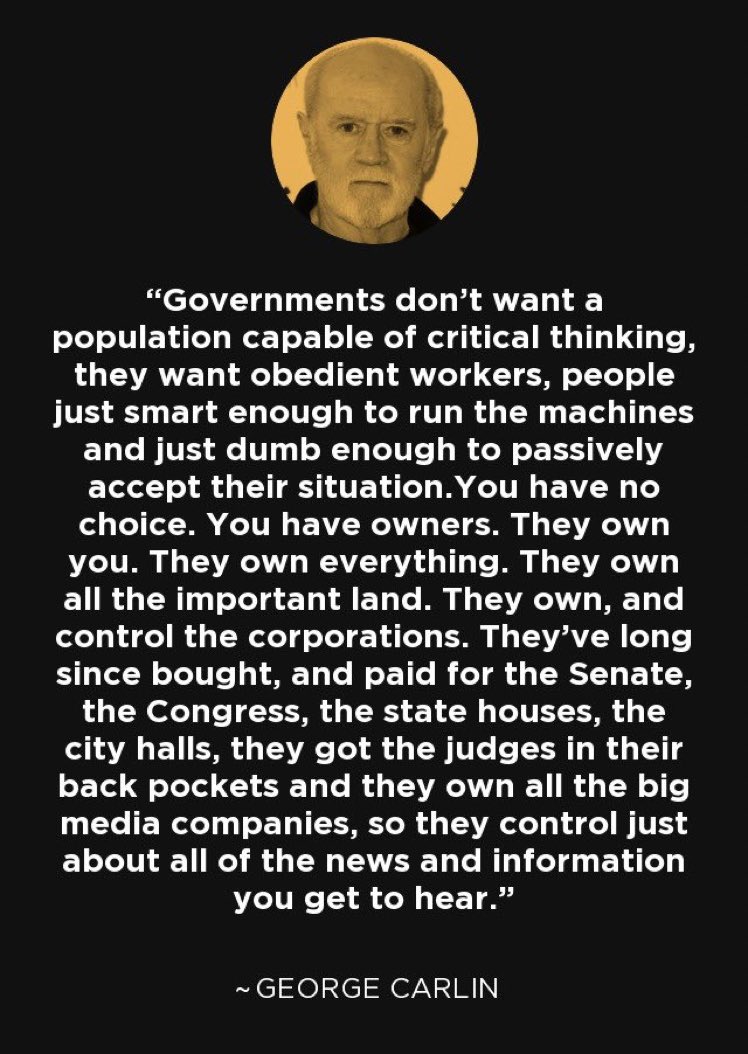
I mean, I don't think the name change is meant to sound any more or less frightening.

Well, unlike most folks, I don't think the change really has much to do with an expected emotional response.
George carlin youtube shell shock free#
You''ll also get our free report, Investing in the Age of Clean Energy: Three Ways Every Investor can Boost their Clean Energy Portfolio by our resident expert Keith Kohl. It's obvious there has been a change to the popular lexicon in regard to my preferred term, “inadvertent climate modification.” Google Trends shows us a clear increase in search traffic for the term “climate change” since 2004.Īnd it shows us a clear decline in search traffic for the term “global warming” over the same period. Meanwhile, others say the term “climate change” is preferred today because it sounds more frightening. “Climate change” is less frightening than “global warming.” As one focus group participant noted, climate change “sounds like you’re going from Pittsburgh to Fort Lauderdale.” While global warming has catastrophic connotations attached to it, climate change suggests a more controllable and less emotional challenge. It’s time for us to start talking about “climate change” instead of global warming and “conservation” instead of preservation. In 2002, Republican political strategist Frank Luntz wrote a memo urging conservative politicians to begin using the term “climate change” over “global warming,” saying:

Some say the term “climate change” is preferred today because it sounds less frightening.

Those reasons, however, are subject to debate. Instead, the lexicon change was the result of many different groups for many different reasons. In 2013, Donald Trump tweeted: “They changed the name from ‘global warming’ to ‘climate change’ after the term global warming just wasn’t working (it was too cold)!”īut the truth is there is no “ they.” There is no global committee of egghead scientists who rubber-stamped a name change. Within scientific journals, there is a difference between “climate change” and “global warming.” NASA says, “Global warming refers to surface temperature increases, while climate change includes global warming and everything else that increasing greenhouse gas amounts will affect.”īut to the majority of the population, the two are one and the same. How we went from “global warming” to “climate change,” however, is less clear. Global warming has reached a level such that we can ascribe with a high degree of confidence a cause-and-effect relationship between the greenhouse effect and the observed warming.

The term “global warming” was first used in 1975 in a scholarly article by geochemist Wallace Broecker of Columbia University titled "Climatic Change: Are We on the Brink of a Pronounced Global Warming?" But according to NASA, the term didn't enter the popular lexicon until June 1988 when scientist James Hansen testified to Congress about climate, saying: A 1971 Swedish study titled "Inadvertent Climate Modification: Report of the Study of Man's Impact on Climate (SMIC)" is one example of the terms use. It's at this time that concerns over CO2-induced climate change begin to mount in the United States and the Soviet Union.īy the late 1960s and early 1970s, the term “inadvertent climate modification” was used in scientific papers to describe what we'd call climate change today. and the Beatles are on the verge of becoming the most influential band of all time. Kennedy is president of the United States. Enter your email address to follow this blog and receive notifications of new posts by email.Most of you will remember that “climate change” used to be called “global warming.”īut before that, it had another name: “ inadvertent climate modification.”


 0 kommentar(er)
0 kommentar(er)
